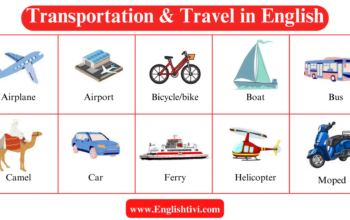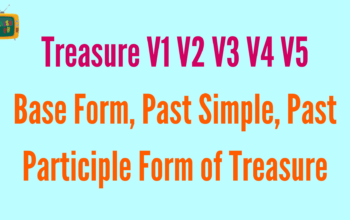Like V1 V2 V3 V4 V5 is one of the verbs that are used very commonly in English tests as well as in everyday communication. Also, because it’s an irregular verb, like doesn’t follow the regular rule. The verb “like” has five different forms: base form, past simple, past participle form, present perfect, and present perfect participle. So what is like‘s past? How do conjugate verbs with like verbs?
⏩ Sign Up to Get Bonus
Let’s find out with English tivi in the article below.
See more at: Verbs
Like of Definition and Meaning
The word like is a verb that means to have a feeling of affection, interest, or agreement toward somebody or something.
V1 V2 V3 V4 V5 Form of Like
| Base Form (V1) | like |
| Past Form (V2) | liked |
| Past Participle Form (V3) | liked |
| s / es/ es (V4) | likes |
| ‘ing’ form (V5) | liking |
Like of Past Simple V2
The verb Like is also employed in its V2 form as “liked”’. It is used to indicate the past tense in sentences.
Like of Past Participle V3
The V3 form is identical to the V2 form. The V3 form is “liked”. Liked is used in the past or present perfect tense.
+ In the present perfect tense, we use the word V1 as ‘have + liked‘ or ‘has + liked'.
- I, you, and we are used as ‘have + liked‘.
- ‘has + liked' is used for he, she, and it.
+ If you need to use the past perfect tense, use ‘had + liked‘ regardless of the subject.
You might also like: ALL the English Grammar Basics You Need
Conjugation of Like V1 V2 V3 V4 V5
| Conjugation table: Like | |||
| Number | Singular | ||
| Present Simple of like | I | You | She/He/It |
| like | like | likes | |
| Plural | |||
| We | You | They | |
| like | like | like | |
| Present Continuous of like | I | You | She/He/It |
| am liking | are liking | is liking | |
| Plural | |||
| We | You | They | |
| are liking | are liking | are liking | |
| Present Perfect of like | I | You | She/He/It |
| have liked | have liked | has liked | |
| Plural | |||
| We | You | They | |
| have liked | have liked | have liked | |
| Present Perfect Continuous of like | I | You | She/He/It |
| have been liking | have been liking | has been liking | |
| Plural | |||
| We | You | They | |
| have been liking | have been liking | have been liking | |
| Past Simple of like | I | You | She/He/It |
| liked | liked | liked | |
| Plural | |||
| We | You | They | |
| liked | liked | liked | |
| Past Continuous of like | I | You | She/He/It |
| was liking | were liking | was liking | |
| Plural | |||
| We | You | They | |
| were liking | were liking | were liking | |
| Past Perfect of like | I | You | She/He/It |
| had liked | had liked | had liked | |
| Plural | |||
| We | You | They | |
| had liked | had liked | had liked | |
| Past Perfect Continuous of like | I | You | She/He/It |
| had been liking | had been liking | had been liking | |
| Plural | |||
| We | You | They | |
| had been liking | had been liking | had been liking | |
| Future Simple of like | I | You | She/He/It |
| will/shall like | will/shall like | will/shall like | |
| Plural | |||
| We | You | They | |
| will/shall like | will/shall like | will/shall like | |
| Future Continuous of like | I | You | She/He/It |
| will/shall be liking | will/shall be liking | will/shall be liking | |
| Plural | |||
| We | You | They | |
| will/shall be liking | will/shall be liking | will/shall be liking | |
| Future Perfect of like | I | You | She/He/It |
| will/shall have liked | will/shall have liked | will/shall have liked | |
| Plural | |||
| We | You | They | |
| will/shall have liked | will/shall have liked | will/shall have liked | |
| Future Perfect Continuous of like | I | You | She/He/It |
| will/shall have been liking | will/shall have been liking | will/shall have been liking | |
| Plural | |||
| We | You | They | |
| will/shall have been liking | will/shall have been liking | will/shall have been liking | |
| Conditional Present of like | I | You | She/He/It |
| would like | would like | would like | |
| Plural | |||
| We | You | They | |
| would like | would like | would like | |
| Conditional Perfect of like | I | You | She/He/It |
| would have liked | would have liked | would have liked | |
| Plural | |||
| We | You | They | |
| would have liked | would have liked | would have liked | |
| Conditional Present Continuous of like | I | You | She/He/It |
| would be liking | would be liking | would be liking | |
| Plural | |||
| We | You | They | |
| would be liking | would be liking | would be liking | |
| Conditional Perfect Continuous of like | I | You | She/He/It |
| would have been liking | would have been liking | would have been liking | |
| Plural | |||
| We | You | They | |
| would have been liking | would have been liking | would have been liking | |
| Present Subjunctive of like | I | You | She/He/It |
| like | like | like | |
| Plural | |||
| We | You | They | |
| like | like | like | |
| Past Subjunctive of like | I | You | She/He/It |
| liked | liked | liked | |
| Plural | |||
| We | You | They | |
| liked | liked | liked | |
| Past Perfect Subjunctive of like | I | You | She/He/It |
| had liked | had liked | had liked | |
| Plural | |||
| We | You | They | |
| had liked | had liked | had liked | |
| Imperative of like | I | You | She/He/It |
| like | |||
| Plural | |||
| We | You | They | |
| Let’s like | like | ||
See more at: Vocabulary
Example Sentences with Like V1 V2 V3 V4 V5
In this section, we will learn about like sentence examples:
- Johnny likes sitting in front of the radio in the evenings.
- I really like your new hairstyle.
- We could've tried to make it more generic by recutting it, but we liked it and thought it could work.
- She is liking a Chanel bag but can't afford it.
Synonym Words For Like
Synonym of like word list. Here are a variety of words whose meaning is nearly the synonym of like:
- enjoy
- love
- adore
- appreciate
- fancy
- relish
- savor
- be fond of
- embrace
- admire
- want
Opposite Words For Like
The antonym of like word list. Here are some words that have nearly the opposite meaning as like:
- dislike
- hate
- despise
- scorn
- abominate
- abhor
- be averse to
- be disgusted with
- be hostile to
You might also like: Best List of Irregular Verbs in English
Some Frequently Asked Questions About Like (Verb)
What is the V1 V2 V3 V4 V5 of like?
The past tense of like is liked. The third-person singular simple present indicative form of like is likes. The present participle of like is liking. The past participle of like is liked.
| Base Form (V1) | like |
| Past Form (V2) | liked |
| Past Participle Form (V3) | liked |
| s / es/ es (V4) | likes |
| ‘ing’ form (V5) | liking |
What is the V2 and V3 form of like?
+ The V2 and V3 form of like is “liked“.
What is the sentence of like?
What is the past tense V2 of like?
+ The past tense of like is “liked“.
What is the past participle V3 of like?
+ The past participle of like is “liked“.
What is the present participle V5 of like?
+ The present participle of like is “liking“.
Conclusion
Let’s learn with English TV the structure of the verb “Like V1 V2 V3 V4 V5“: Base Form, Past Simple, Present Continuous and Present Continuous and Present Continuous and Present Continuous forms. We wish you all the best of luck.
You should subscribe to the English TV YouTube channel if you want to learn more about the English language and improve your proficiency.





